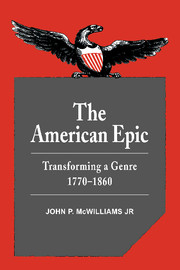Summary
Halfway through Tom Wolfe's The Bonfire of the Vanities (1987), beleaguered bond king Sherman McCoy listens absentmindedly to an afterdinner speech at a desperately fashionable Fifth Avenue dinner party. The speaker and guest of honor, a haggard British poet named Lord Aubrey Buffing, who is reputed to have been on the short list for the Nobel Prize, tries to strike a tone of light-hearted confession:
The United States deserve an epic poem. At various times in my career I considered writing an epic, but I didn't do that either. Poets are also not supposed to write epics any longer, despite the fact that the only poets who have endured and will endure are poets who have written epics…. No, we poets no longer even have the courage to make rhymes, and the American epic should have rhymes, rhyme on top of rhyme in a shameless cascade, rhymes of the sort that Edgar Allan Poe gave us.
Wolfe's mockery of a rhymed epic for contemporary America is inseparable from his recognition that the demand for one has somehow, ludicrously, lingered on. Lord Buffing's mention of Poe, however, suddenly turns his speech in a quite different direction. Buffing speaks of “The Masque of the Red Death” as a prophetic allegory of the contemporary pleasure whirl, which is likely to end in the death of Prospero and his self-immured seekers of oblivion. After acknowledging “I cannot be the epic poet you deserve. I am too old and far too tired, too weary of the fever called ‘living’ ” (356). Lord Buffing sits down, leaving the room to an intruder named Silence who prevails because the guests are momentarily anxious that they might not have understood something possibly profound.
On one level, Lord Aubrey Buffing serves as the barely standing proof that Poe's strictures against the contemporary epic were entirely correct. An epic poem on America means nothing to any guest present, none of whom could be imagined to exist in such a poem.
- Type
- Chapter
- Information
- The American EpicTransforming a Genre, 1770–1860, pp. 238 - 242Publisher: Cambridge University PressPrint publication year: 1989

